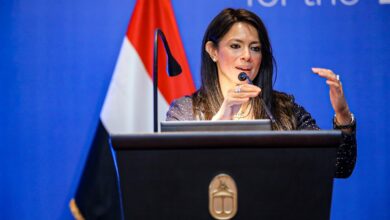Nearly 1400 participants from 43 countries marching to Palestine via Egypt. With a premise like that, hoping for things to go smoothly is wishful thinking.
The Gaza Freedom March, an event organised by several pro-Palestinian organisations led by Code Pink to enter Gaza from the Egyptian border on December 31st, a few days past the first anniversary of the 22-days long Israeli attacks on Gaza, is being met by a stonewalling and uncooperative Egyptian government.
The relationship of the Gaza Freedom March with the Egyptian authorities has been expectedly rocky. While they had originally allowed for the March – “provided that no Egyptians or Palestinians took part”, told us retired U.S. Army Colonel and former diplomat Ann Wright, who helps organize the march, the Egyptian authorities backtracked and decided, on December 21 – days before the March was due – to ban the March, and warned, in a Ministry of Foreign Affairs statement, that “any attempts to violate the law or public order by any group whether local or foreign on Egyptian soil will be dealt with in conformity with the law”.
The GFM’s response was prompt – its steering committee released a communiqué unambiguously titled “We are determined to break the siege – We all will continue to do whatever we can to make it happen”. A participant in the march, Professor Keith Hammond of Glasgow University, declared the March has been informed that “everything we do in public and in groups of more than six is illegal” – a provision allowed by the Egyptian Emergency Law, in place since 1981.
Meanwhile, GFM participants currently in Cairo have been subjected to various kinds of harassment. On Sunday, an attempt to float candles on the Nile, in remembrance of the lives lost in Gaza during the Israeli war on the Strip last year, was aborted by the police, which stopped the participants from getting aboard the tourist boats – going as far, says Mr. Ziyaad Lunat, an organizer of the GFM, as to confiscate the motors on those boats.
Some complained that uniformed and plain-clothed policemen came to their hotels in Cairo, talking to them and attempting to dissuade them from partaking in the protest.
The authorities also refuse to let the participants meet in a large meeting room, according to Ms. Wright, “making it impossible to brief everyone at once”. As for the participants who have already made their way to the city of Al-Arish, near the border with Gaza, “their hotel is almost surrounded”, says Mr. Lunat; “they are almost unable of leaving the hotel, and have to negotiate their way out when they want to go buy things or head to the beach”.
In parallel, the “Viva Palestina” convoy of 210 vehicles driving from Britain is currently stranded in Jordan, hoping for Egyptian authorization to cross through the Nuweiba port and onwards to Sinai and Gaza. Here again, stonewalling: Hossam Zaki, spokesperson for the ministry of Foreign Affairs said that “entry can only be through Al-Arish” – which would add several hundred kilometers to the journey.
The Muslim brotherhood, the main opposition body in Egypt, was quick to condemn, on December 26, the new wall Egypt is building on the Gazan border and demanded the humanitarian convoy be allowed in.
I spoke to Mr. Lunat briefly after he hand-delivered a letter to the Egyptian presidential palace. “It’s an open letter, signed by the main organizers of the March, appealing to President Mubarak to allow us access into Gaza. However we are yet to receive a reply”. But he was not very optimistic.
Egypt’s attitude and reaction towards those initiatives can only be qualified of clumsy. As Cairo goes ahead with its plans to build an underground wall on its border with Gaza which is likely to severely curtail the smuggling of goods so vital to the strip, it is increasingly seen as inching closer to a collaborationist position with Israel in the eyes of supporters of the Palestinian cause, both at home and abroad. The regular pro-Gaza demonstrations in downtown Cairo, most recently on December 27th, makes clear where the Egyptian population stands on the matter. Furthermore, as Ms. Wright notes, “with 1400 participants from 43 countries, that, after all, is bound to affect Egypt’s international image”.
“We are a little unsure why they’re doing that”, she adds, puzzled. “We understand Egypt’s security concern, of course, but our purpose is not to call attention on Egypt or any of its local policies”.
A more rational position for the Egyptian government would then be to facilitate the entry of peace activists and the supplies they bring into the blockaded strip.
It is not too late for Egypt to rectify its position and ease the tension with the activists. A far better reaction would be to present itself as the supporter of the Palestinian cause its population expect it to be, and facilitate the passage of the march and the convoy to Gaza; and if the activists were to be turned away from Gaza, Egypt should let it be done by Israel – rather than pick up a moral tab it cannot afford.




